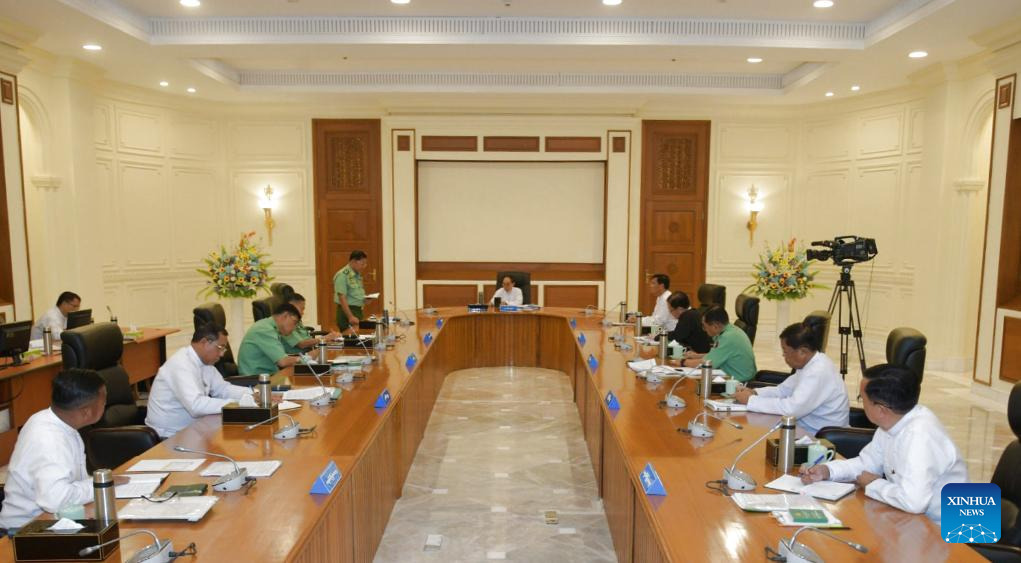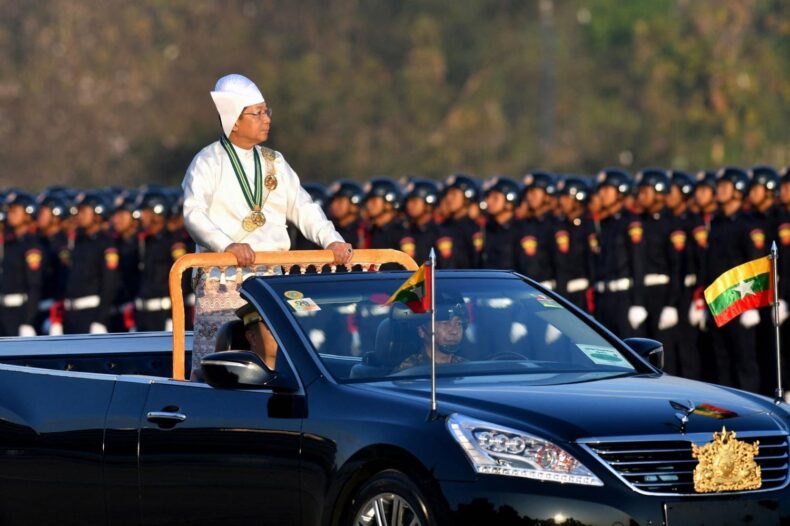Extending the state of emergency, Myanmar’s military-run government has forced a further delay in elections than promised in 2021 when it took over. The military junta seized power from a democratically elected government two and a half years ago in Myanmar. Since then, the country has been in a state of emergency.
Why has the emergency period been extended?
On Monday, the National Defense and Security Council (NDSC), met in Naypidaw and extended the state of emergency for another six months. The decision was taken on the grounds that more time is needed to prepare for the elections. It should be noted that the NDSC is a nominal government and that the real power to govern rests with the military.
The announcement amounted to an admission that the army, despite having a significant advantage in manpower and equipment, does not exert enough control to conduct elections and has failed to quell widespread opposition to military rule, which includes armed resistance as well as nonviolent protests and civil disobedience which are becoming increasingly challenging.
According to the army-enacted constitution of 2008, the military can hold power in the country under a state of emergency for a period of one year. This period can be extended for one additional year, with 2 six-month extensions in case preparations for new elections are not yet finished. Accordingly, the term ended for the military on 31 January this year.
However, the announcement on Monday marks the fourth extension of the current military regime in Myanmar. The NDSC had allowed the third extension in February, on the pretext that the country remained in an abnormal situation.
The announcement did not specify when the elections will be held. It only mentioned that they would occur after the goals of the emergency are accomplished.

Background:
On February 1, 2021, Aung San Suu Kyi and top officials from her government, as well as members of her National League for Democracy Party, were arrested and overthrown by the military junta. Myanmar had previously been under military rule for five decades. The military takeover of 2021 had reversed all the progress Aung San Suu Kyi and co had made towards restoring democracy in Myanmar.
In the most recent general election held in November 2020, which Suu Kyi’s party won by a wide margin while the military-backed Union Solidarity and Development party fared badly, the military claimed it had been the victim of fraud. Independent election monitors reported that they did not discover any significant anomalies.
After the takeover happened, Myanmar’s streets were filled with pro-democracy peaceful protestors which the security forces fiercely cracked down. This suppression triggered an armed rebellion that was described as a civil war by UN experts.
According to the Assistance Association for Political Prisoners, as of Monday, 3857 people have been killed by the security forces since the takeover of 2021.
All government functions- legislative, executive, and judicial- are given to the head of the ruling military council, Senior Gen Min Aung Hlaing, as allowed in a state of emergency.
It was expected that the state of emergency would be extended, according to Nay Phone Latt, a spokesperson for the National Unity Government, an underground organization that claims to be the nation’s legitimate government. Latt said that the government was not able to annihilate the pro-democracy movements because of which, the junta extended the emergency. In a phone message on Monday, Latt said, “As for the revolutionary groups, we will continue to try to speed up our current revolutionary activities.”












